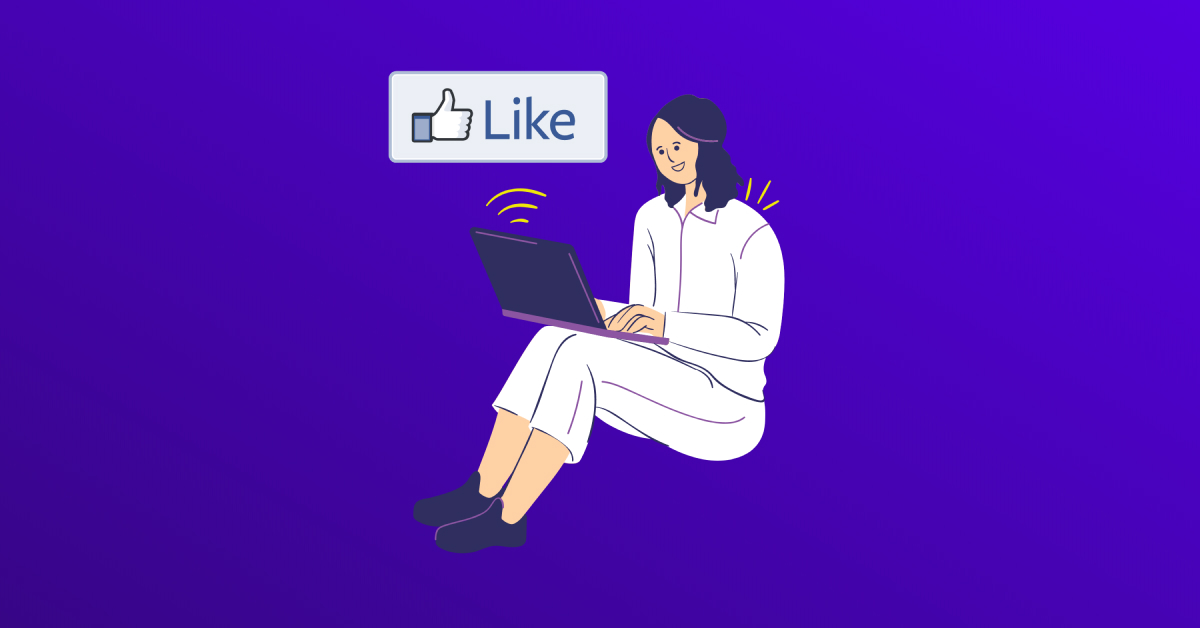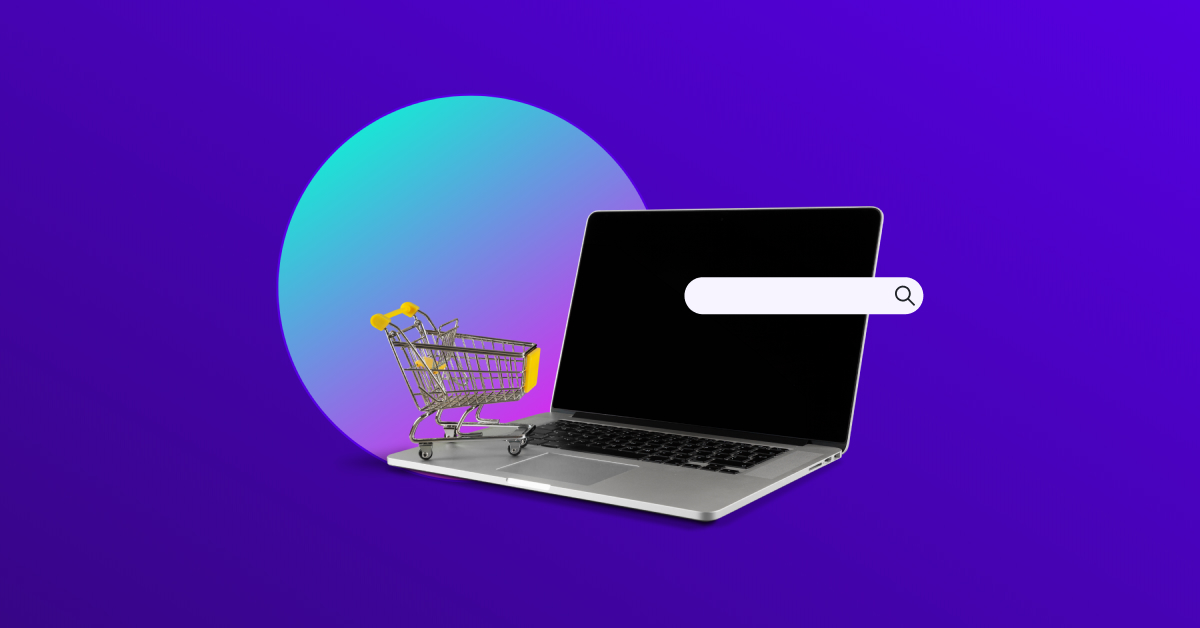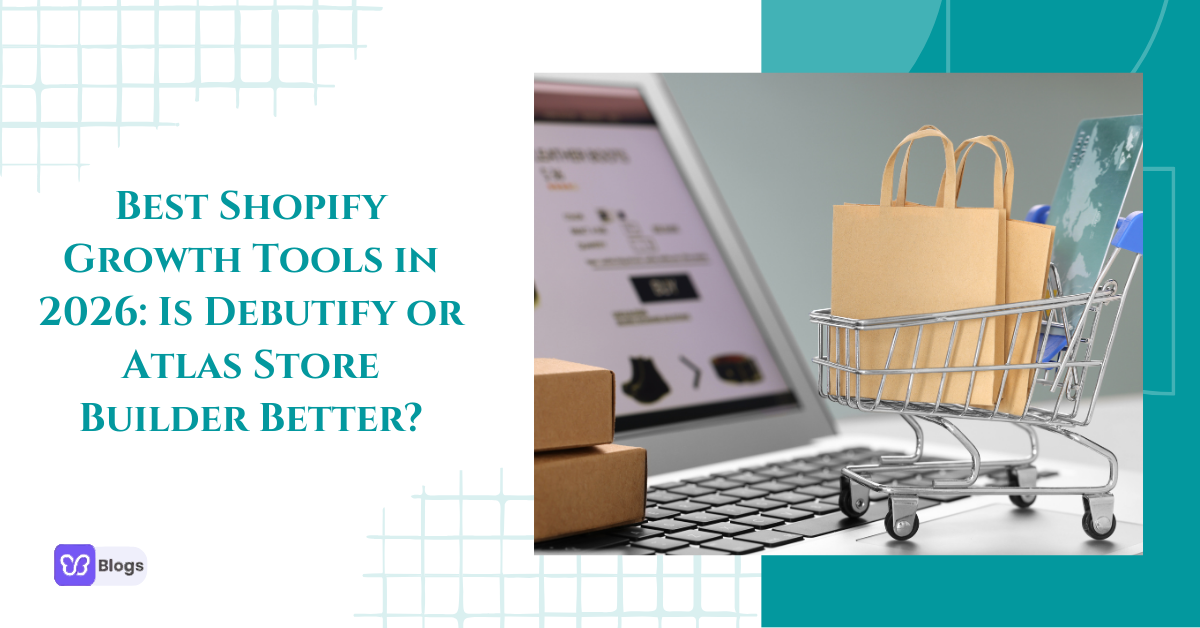Let me guess...
You want to give your customers a seamless experience in your ecommerce store... but you somehow end up getting unsatisfying results.
Sometimes, you even waste weeks of your precious time spinning your wheels.
And it seems like no matter what you try... you just can't seem to crack the secret of having a smooth customer experience across all your platforms.
You see, customers want to engage with companies using different channels.
But sadly, not all brands are adapting to what their customers want...
Some may think it's just a waste of resources, time, and effort... or sometimes, complicated to implement.
But that's not true.
Because today, I'm going to share with you two of the possible strategies you can use to give your customers the best experience in your ecommerce store!
I will talk about omnichannel and multichannel marketing. And how these strategies can help your customers achieve a seamless experience while shopping.
So, let's deep dive now!
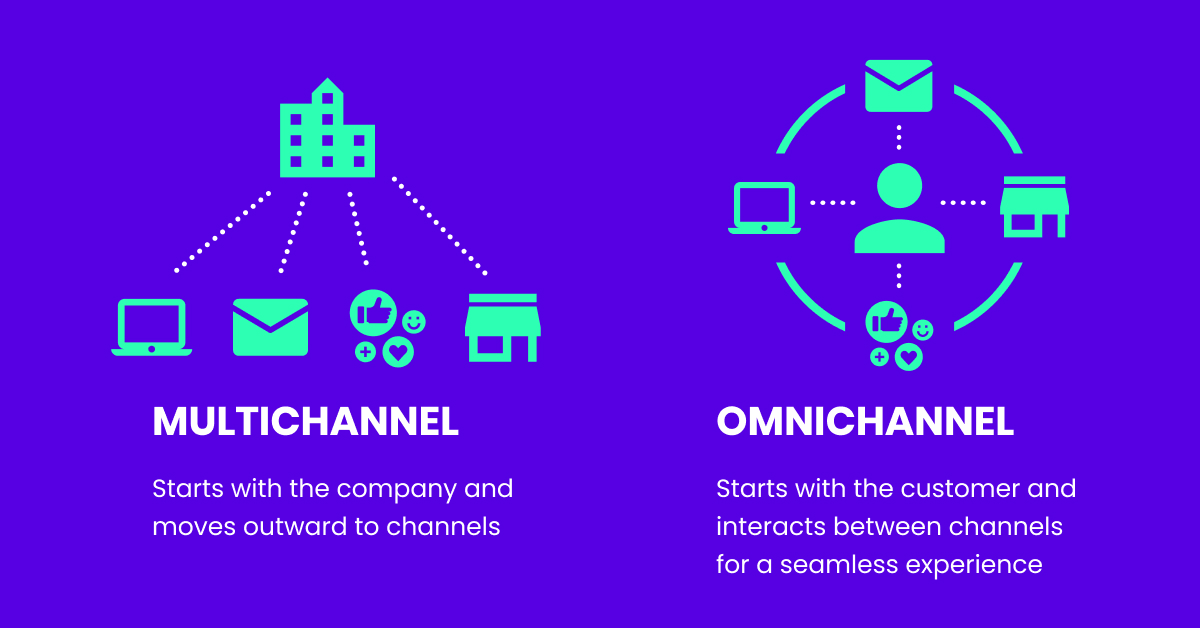
How Does Omnichannel Ecommerce Work?

"Omni" means "all."
An Omnichannel approach demands data collection and communication across different platforms. It is a form of a channel that allows you to sync ALL your digital touchpoints across other channels.
Sometimes... this integrated system helps customers continue the journey where they departed. As if the brand remembered them.
The goal of omnichannel ecommerce is to make everything convenient for your customers. It means you can link your physical stores' operations to your online channels. Or you can connect all your channels to one another.
For example: If a customer scheduled a pickup from your website... they wouldn't have a hard time picking up the order from any of your brick-and-mortar stores. Because your physical and ecommerce store to integrate and work as one.
So, let's compare it with multichannel marketing...
What is Multichannel?
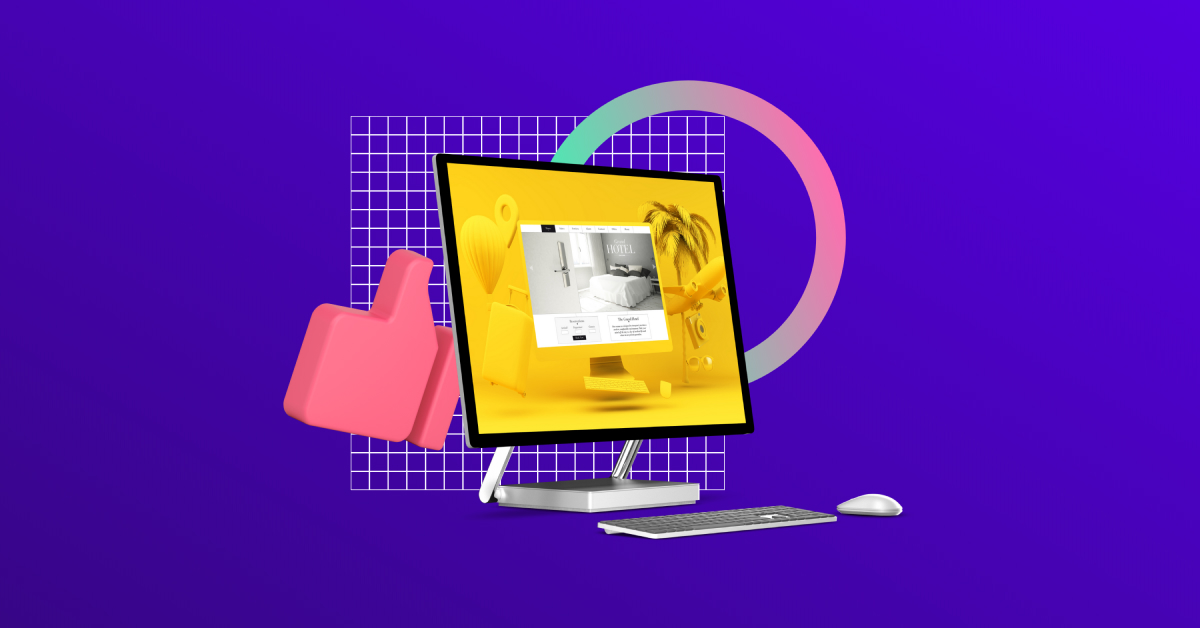
"Multi" means "many."
Multichannel allows businesses to reach more customers on many channels. As compared to omnichannel, this isn't customer-centric.
And here's the thing... multichannel enables your business to give customers more choices. Even if it's not exactly designed for a seamless experience.
For example: If customers want to connect with you... they can go to your website, social media, or another medium you're using. They have multiple channels to choose from. But the data is not linked to each other.
Are you still feeling a bit confused?
Now, let's take deep dive into some of their key differences.
Multichannel vs. Omnichannel
Multichannel refers to using five different ways to communicate messages or ideas to customers.
The brand is at the center of all strategic plans. And brands are working with the channels to deliver this message manually.
So, omnichannel marketing offers another approach.
It puts the customers at the heart of the strategy. In the case of purchase, the messages that your customers see will sync automatically. No matter what the channel is.
People enjoy it when you save them time and money. Thus, using omnichannel marketing will provide your customers with these conveniences.
But... they have their different benefits! And that's what we're talking about now.
Omnichannel Benefits
1. Enhances Customer Experience
Between omnichannel vs. multichannel marketing, customer experience is the goal of omnichannel.
As I mentioned above, omnichannel is customer-centric. That means... its goal is to provide a seamless customer experience across all channels because that's what customers expect from you.
And when you give them the best customer experience, you can...
2. Increases Sales
Did you know that companies with strong omnichannel marketing see a 9.5% increase in annual revenue?
That's amazing, right? Because customers can either make or break your business. And if you don't focus on them, get ready to lose sales.
And another benefit of omnichannel is...
3. Improves Customer Retention
Have you heard that businesses with omnichannel marketing can retain 89% of customers?
Yep, I couldn't believe my eyes as well! Customer retention is crucial in building a successful ecommerce store.
To improve customer retention... it is crucial to ensure every step of the customer journey is positive. This is essential for omnichannel retail.
That's why if you're not yet considering a customer-centric approach, you are up to no good.
Since we're talking about omnichannel vs. multichannel marketing, it's time to break it down...
Multichannel Benefits
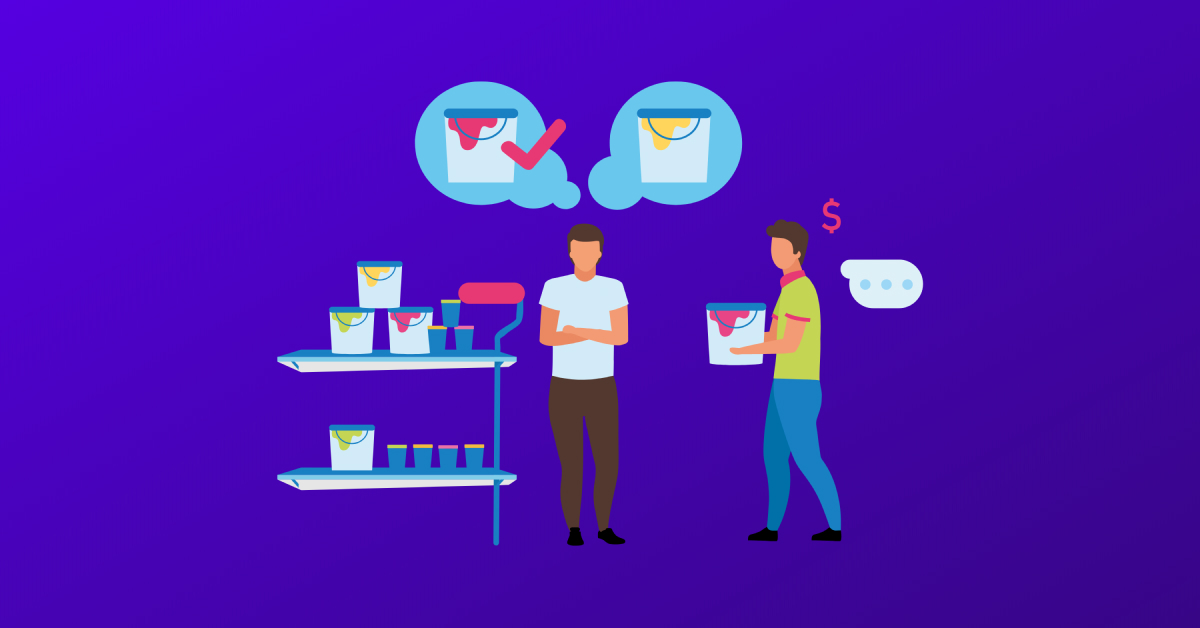
1. You Can Learn Customer Preferences
Since multichannel is about having different channels... you can determine which channel is getting more users.
For example, if you have several customer service channels... you can find which one is getting more traction. It can be social media, phones, or emails.
Next is...
2. It Helps You Improve Your Strategy
As I said above... you can quickly determine what users want through multichannel marketing. It's easier to see the behavior of your audience on different channels.
And since multiple channels aren't connected, you can see which particular strategy works well! Because of this, you can further enhance your ecommerce strategy and customer engagement!
Another benefit of multichannel marketing is...
3. Build A Presence Across Different Platforms
Since you have many channels on different platforms, you can create a strong brand presence anywhere. As long as your customers are there, by the way!
It's essential to build an online presence on different platforms. And thanks to multichannel marketing, you have more opportunities to achieve this.
Now, there's probably a question brewing up in your mind.
Which one's better for your ecommerce store?
And you're here to find out the answer. Let's look at different factors before you choose.
Omnichannel vs. Multichannel For Ecommerce
1. Customer Service
Since omnichannel is all channels integrated... customer experience can be more convenient than multichannel.
Let's say your customers have concerns. And they choose to send you a message on your social media platforms. And then you decide to pass them on to your email representative.
So, if you're using omnichannel marketing, your customers wouldn't have to repeat themselves. It doesn't matter who they're talking to, because your channels are integrated.
On the other hand... your customers would have to go back from the start if you're using multichannel marketing. Why? Because there is no integration.
The keyword here is SEAMLESS. Omnichannel lets your customers have a seamless experience across your channels.
Another angle we need to look at is...
2. Brand Consistency
If you want to have consistent branding across your platforms, you need to choose wisely.
As I said, omnichannel is customer-based, while multichannel is channel-centric. So, the latter is about having different channels without correlating to each other.
That means... consistency in messaging on social media, email, print, and digital ads is not easy to achieve with multichannel marketing.
While for omnichannel, it's attainable to streamline your brand messaging. Why? Because all your medium has one goal: to give the best customer experience.
Another important thing is...
3. Order Fulfillment
Inventory is just as important as your online presence. And order fulfillment between omnichannel vs. multichannel for ecommerce is another angle to look at.
Let's put it this way.
If you're selling on multiple channels, omnichannel might be convenient for you and your customers. It's because you have a merged inventory system. So, it's easier to manage orders wherever customers place their orders.
But for multichannel, you can have different order fulfillment systems for other channels you're using.
Since you already have some ideas, let's talk about some tips!
Tips for Omnichannel Marketing
1. Work Closely With Other Teams
Working with other teams is part of our omnichannel marketing strategy.
To unify your messaging across all your platforms, you need to work closely with members of your brand who are managing other channels.
Remember, omnichannel marketing aims to have unified messaging across all your platforms. So, it wouldn't make sense if you don't work closely with the teams handling different channels.
This ensures that the customer experience is smooth despite them using different channels!
Another is...
2. Connect Systems And People
This is important to strengthen your omnichannel strategy. Investing in tools will help you automate and integrate all your channels.
Good quality storage of all the information is often necessary to preserve a seamless customer journey.
For example, you are displaying the inventory number on your ecommerce store. Now, if a customer bought a product in your brick-and-mortar store, you also need to update your website. The same goes if they purchase online.
It's essential to create a process of keeping the physical stores updated about new orders. It will also help if someone can update inventory numbers. To make sure everything is updated across your sales channel... connect systems and people.
The next one is...
3. Identify Customer Opportunities
To plan out your omnichannel strategy, you need to map out your customer journey. This is to improve your customers' interaction with your brand.
So, throughout their buyer's journey, you can create a positive and lasting impression. And you can use this to strengthen brand loyalty.
That's why you need to ensure you're not missing anything. One way to pull this off is through data gathering. This will help you identify possible customer touchpoints with your brand.
Why not ask your customers about their preferences, and work on your overall strategy?
Adopt a client-focused view of your brand... and it helps you assess opportunities to provide a more convenient shopping experience.
But if you're not fond of this, I have multichannel marketing tips for you!
Tips for Multichannel Marketing
1. Choose The Best Multiple Channels
Between omnichannel vs. multichannel marketing, the latter is channel-based. And you need to choose the best channels for your customers.
Let's say for your customer service. You can choose social media, phone, email, and a website contact form. The key here is to give your customers multiple channels for more convenience.
The next tip is...
2. Give The Best Customer Service
Just because your multichannel strategy is not customer-centric... doesn't mean you won't give the best customer service.
Whether your customers are using social media or email to communicate with you... it's still possible to provide a smooth customer experience!
And last but not least...
3. Use Customer Data
You need to enhance your multichannel strategy from time to time. And using data can help you with this.
Ask yourself... do your customers prefer social media? Or your website? Or, if they have concerns, do they call you or send a message on Facebook?
Always check your customer preference and which channel they use the most. Then from there, you can further improve your channel and service.
Think that's all?
Give Your Customers A Seamless Experience On Your Ecommerce Store
I'll tell you a secret...
Choosing between omnichannel and multichannel marketing is not just the way to give the best customer experience. It's a lot of work.
But wanna know how you can make the customer experience even better?
By having a smooth and fast-loading website your customers can rely on it!
And I have something perfect for you...
You need an Ecommerce Theme that can also be your Profit Optimization Partner... and that's Debutify! Aside from enhancing how your ecommerce store looks and feels... it can also improve your average order value and conversion rate with its over 50+ Add-Ons!
Sounds impressive, right?
Now, it's time to...
Build A Seamless Ecommerce Store With Debutify - Today!
14 Days Trial. 1 Click Installation. No Credit Card Required.

